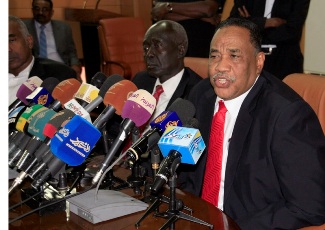Khartoum & Juba to appoint observers at oil production and export sites
March 29, 2013 (KHARTOUM) – The governments of Sudan and South Sudan have agreed on appointing observers from both sides to monitor oil meters at production areas as well as major stations on the pipeline.

“The committee responsible for overseeing oil meters has almost finished its work and will activate existing meters at production sites and port of exportation”, Abdul-Fattah said adding that “we welcomed installing additional meters at any convenient location”.
The Sudanese official predicted that oil will arrive at Port Sudan terminals on May 15 and that production will reach 350,000 barrels per day (bpd )in July.
Achek, for his part, said that the cooperation agreement signed last year boosted trust between the two sides revealing that oil revenues will flow at the beginning of June, pointing out that the joint committee will complete its tasks in Juba next week.
Landlocked South Sudan, which seceded from Sudan in July 2011, closed off its 350,000 barrel-per-day output in January last year in a dispute with Khartoum over how much it should pay to send the oil through Sudanese pipelines to the Red Sea.
Earlier this month the two countries signed a document setting out a timeline for the implementation of several cooperation deals agreed to last September in Addis Ababa including resumption of oil exports.
Both countries rely on foreign currency from oil sales to import food and fuel, but border disputes and other issues left over from partition have prevented them resuming exports.
(ST)
